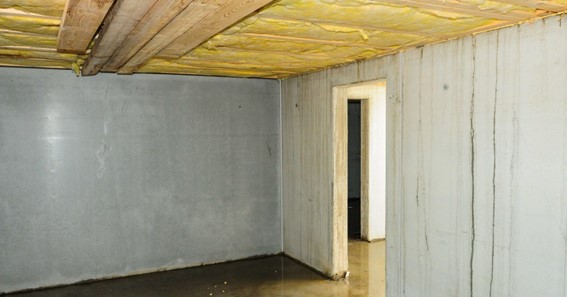Basements are usually built below grade and hence can experience seepage. However, moist basements affect the building’s foundation, damage furniture, promote mold growth, and affect your building’s value. You must waterproof your basement if you suspect seepage. So whenever you are looking for expert basement waterproofing click here.
Causes of a Wet Basement?
Anyone who has a basement in their house should know what can lead to moisture in their basement. Given below are common reasons for your basement being wet:
- Badly maintained gutters
- Hydrostatic pressure
- Wall and floor cracks
- Condensation
- The inefficient landscape of the foundation
- Bad drainage system
Can You Waterproof Basement Walls from the Inside?
It is possible to waterproof basement walls from the inside. Given below are some of the common methods:
Redirect Water from the Foundation
Land grading is essential when there is water in your basement. The runoff can seep into below-grade rooms if the ground slopes towards your foundation. If your ground slopes are between 6 inches and 10 feet away from your building’s foundation, you will face drainage issues. Poor grading will compromise the overall strength of the building. You must grade your yard to stop water seepage into the basement. This will prevent the entry of incoming water. You can grade the landscape by creating tough like depressions and mounds of soil to divert the water flow.
Also, you can prefer CCTV Drain Surveys London which helps to maintain your drainage system.
Fill Gaps and Cracks
If you notice water entering through cracks and gaps, you must seal them using hydraulic cement. This cement contains a few additives that will help with expansion and adhesion. The sealant will travel deep into the crevices and cracks, preventing more seepage.
Apply a Masonry Water Proofing Product
You can coat the basement’s interior walls with a waterproof masonry product. Once the paint dries, the sealant will create a watertight bond, stopping the water from coming in.
Upgrade or Add New Downspouts and Gutters
Downspouts and gutters help remove the water and direct it away from your house. They contribute to the structural health of your building. If you don’t have sump pumps or gutters, consider adding new ones. If you already have them in your home, fasten the plastic or metal extensions. This will help hold the extra water and drain it away from the building.
Install an Interior Drainage System
You can install an interior French drain and sump pump system to prevent seepage in the basement. These two provide complete protection against water accumulation or dribbling in the basement. While the installation may be a little hard, it will solve your water problem. You will have to dig a trench on the basement floor to lay the French drain and connect it with the sump pump through a drainpipe. Once this is done, you must add more gravel to the trench. The drain tile will take the additional water into the sump basin and then discharge it from your home via an electric pump. You can contact a basement waterproofing company like Seepageseal to come and help you with the French drain installation. They offer professional basement waterproofing services, including French drain installation, excavation and coating, and sump pump installation.
Apply Waterproof Concrete Coatings
You can apply a thick, cement-like coating that sticks to your walls permanently. You can apply the material to the walls using the kind of brush recommended by the brand. However, you cannot apply these waterproof coatings on painted walls.
Plastic Panels or Sheets
You can pair plastic sheets with the drainage system. However, this is an expensive option where the water will stay trapped between the basement wall and plastic instead of getting in. It will then run down the plastic and get collected by a drainage system before being emptied into the sump pump.
Silicate Concrete Sealant
Silicate concrete sealants are also referred to as densifiers. They are ideal for masonry and cement walls. They don’t flake off as they penetrate the walls. You can paint over the sealant once it is cured. However, this sealant won’t work on painted walls.
Is it a Good Idea to Waterproof the Basement from the Inside?
Waterproofing your basement walls from the inside is a definite way to prevent water from getting inside the walls by grading the foundation. But finally, if you want to ensure that the water will never get in, you will have to waterproof your foundation. It can be expensive to grade the foundation as it involves excavating it until it is exposed and sealing any cracks.







